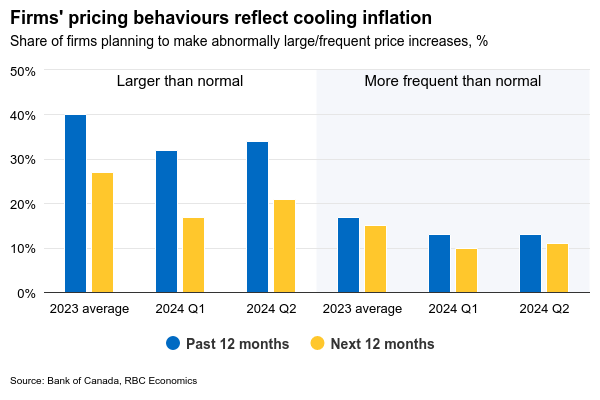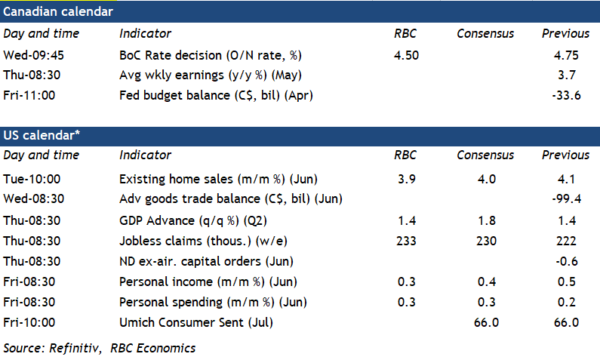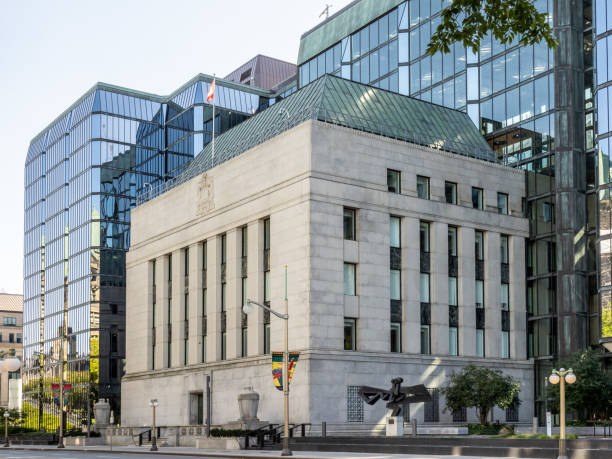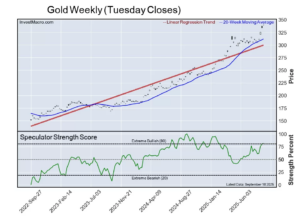Softer inflation in Canada in June provided a small relief after an upside surprise in May, and set the Bank of Canada up for another 25-basis point interest rate cut on Wednesday to build on its first cut in June.
Similar to the June meeting, we think the central bank will highlight a weakening economic backdrop and broadly easing underlying inflation without providing additional guidance on the timing of future rate cuts. Risks are that there will be less easing bias, given the slightly choppier progress in recent consumer price index readings. The BoC’s preferred measures of “core” inflation have been edging higher on a three-month annualized basis since April, but a streak of lower prints earlier this year means the six-month annualized readings have still been trending lower.
Looking ahead, indicators from the Q2 Business Outlook Survey are pointing to further unwinding in price pressures with fewer firms expecting larger or more frequent price increases in the next year. Business expectations for inflation and wage growth also continued to moderate with the latter in line with cooling labour market conditions as the unemployment rate creeps higher. Survey of Employment, Payrolls, and Hours (SEPH) data on Thursday should echo these trends. Wage growth from SEPH and the job vacancy rate in April have already normalized close to pre-pandemic levels. The hourly wage was up 3% from a year ago compared to 2.7% in pre-pandemic 2019, and the job vacancy rate was back at the 2019 average rate of 3.2%. We expect another decline in those measures in May.

Week ahead data watch
We expect U.S. GDP to have increased by 1.4% (annualized) in Q2/24, similar to growth in the first quarter. Much of that increase in Q2 was thanks to higher household consumption, offsetting a decline in residential investments as housing starts trended lower. Trade deficits likely widened in the same quarter, as rising exports were not enough to catch up with growth in imports.
We expect personal consumption to tick higher (+0.3%) in June, a bit higher than the 0.2% in May. Personal income likely grew by 0.3% in June, down from the 0.5% in the prior month and consistent with the slower wage growth we saw earlier in the payroll report.










